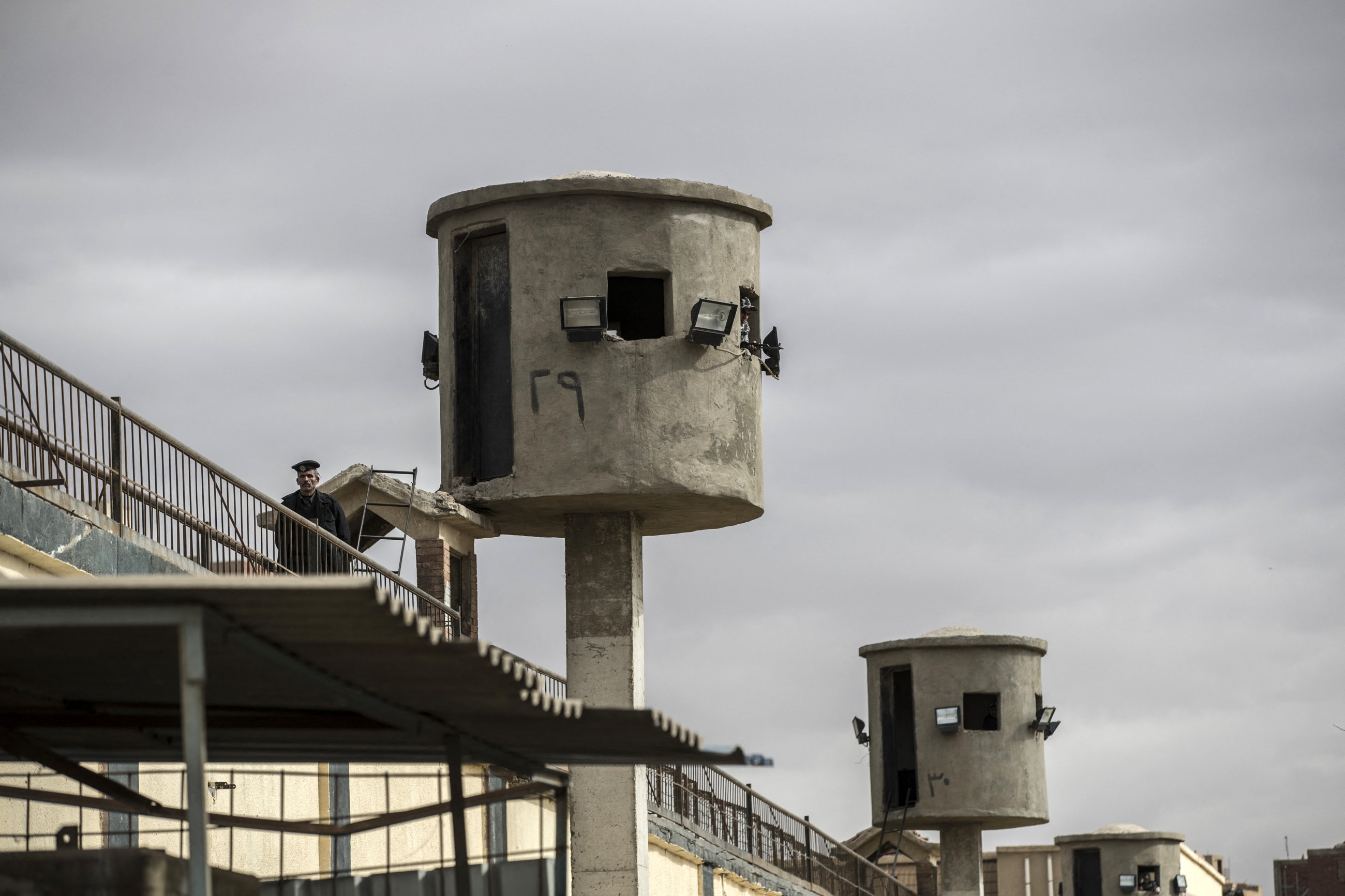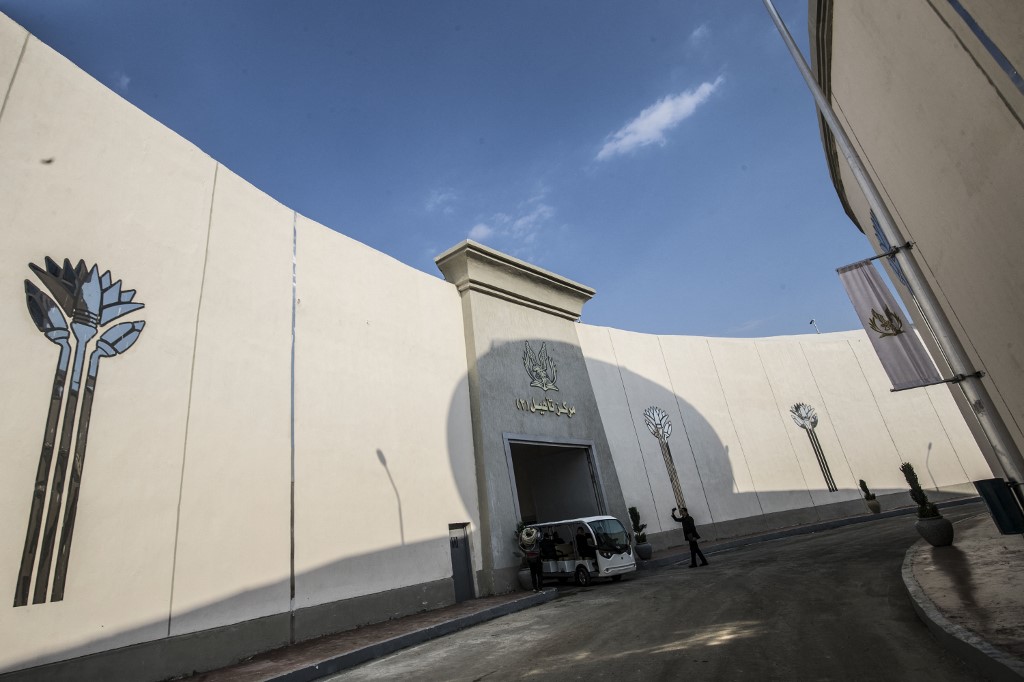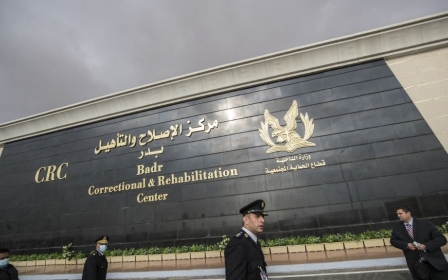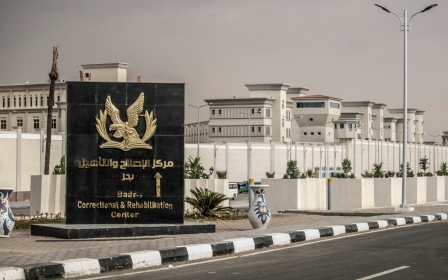Egypt: Harsh prison life pushes inmates' wives to divorce husbands in despair

After seven years of emotional and physical exhaustion, Sarah was finding it difficult to stay in her marriage.
But it was not the actions of her husband, Anas, that led her to think about divorce, but instead his continued imprisonment by Egyptian authorities - an increasingly difficult burden with little hope of Anas’ release, or even improved visitation conditions.
Gone were the dreams of a normal family life, to be replaced instead by a reality that many other Egyptian women face, waiting on the release of their husbands and fiances - among the thousands to have been detained in Egypt since a coup led by now-Egyptian President Abdel Fattah el-Sisi in 2013.
Sarah and Anas were engaged in February 2015 and then signed their marriage contract the following year, but Anas disappeared shortly before their wedding ceremony in the summer of 2016.
New MEE newsletter: Jerusalem Dispatch
Sign up to get the latest insights and analysis on Israel-Palestine, alongside Turkey Unpacked and other MEE newsletters
Speaking to Middle East Eye, Sarah said that Anas’ sudden disappearance was a painful experience.
"He had promised to call me … but 45 days passed without any communication," Sarah said. She desperately searched for any sign of her husband until she discovered that he had been arrested and was involved in a military case, accused of illegal political activity, an accusation his family denies.
MEE is avoiding specifying the exact details of Anas’ case so as to not identify him, which could lead to repercussions for Anas, Sarah and their extended family.
Human rights groups have accused Egyptian authorities of torturing prisoners, and have said that trials, particularly those focused on political cases, are often unfair.
Humiliating visits
During the first two years of Anas’ detention, his imprisonment was extended on a monthly basis, according to Sarah. But she was still hopeful that he would be released and visited him once a week, starting her long journey to the prison in the middle of the night.
“I lived far away in a remote governorate and had to travel to Tora Prison in southern Cairo,” Sarah said. “Carrying heavy bags of food, I would join a long queue alongside families of criminals and political detainees outside the prison.
'I tried to convince myself that he was just away on a trip, but it was incredibly difficult'
Sarah, wife of Egyptian prisoner
"The area was infested with insects and garbage, triggering my phobias … I would [not] enter through the prison's first gate [until] around 11 am or 12 noon, enduring the scorching sun without sleep."
Sarah says that verbal insults were common while waiting to see the prisoners, recalling an incident where security officers threatened to rape prisoners’ wives before they entered to see their husbands.
More queues followed at each gate, including body searches, in which Sarah described a degree of sexual harassment.
When visits finally resumed, Sarah recalled, "I would have brief meetings with Anas, lasting only five to ten minutes. We were separated by two steel wire fences with a one-metre gap. The fences, along with the simultaneous visits and loud conversations, made it impossible for me to see or hear him clearly."
Growing trend
Sarah is one of many Egyptian women facing the same dilemma of balancing their own duty and love for their partners with maintaining their own mental health, and withstanding pressure from their family and friends telling them to separate for their own sake.
One woman contacted by MEE waited for nine years after her husband had been arrested on their wedding day before she decided to end their marriage. Another woman’s husband was arrested during their honeymoon - she eventually decided to get a divorce.
Family members of one divorcee asked MEE not to get in contact with her, as she had remarried and was undergoing therapy.
The exact number of marriages that have ended in divorce as a result of imprisonment in Egypt are unavailable.
However, Heba Hassan, the director of the Egyptian Coordination for Rights and Freedoms, said that there had been a noticeable increase in divorce cases among those imprisoned.
"From my observations," Hassan told MEE, "the phenomenon began around three to four years after the coup and primarily affected women who were engaged or had obtained an official marriage certificate, but had not yet begun living together in the same home.
"Initially, wives and mothers showed more patience while waiting for their husbands' release. However, as detentions prolonged and pressures intensified, this dynamic shifted."
Hassan noted that there are a number of reasons for divorce, including security concerns, financial issues, psychological health, as well as pressure from family and wider society.
"The harsh conditions of imprisonment are the primary reason for divorce," Hassan said. She explained that wives face difficulties visiting and even communicating with their husbands, and that each visit violates their basic human rights, subjecting them to humiliation and additional burdens.
Hassan also cited incidents reported to her of pressure being exerted during visits to push wives towards divorce. Security personnel openly questioned why the women continued to visit despite the humiliation. "Divorce and free yourself," the women were told, according to Hassan.
Hassan also emphasised the financial difficulties the wives of detainees face, with the husbands having often been the primary breadwinners prior to their imprisonment. The situation therefore forces wives to work or rely on support from extended family or charitable donations to sustain their families and fund expenses associated with visiting prison.
But that can also cause problems.
"In some cases, the wife's own family may also feel reluctant to shoulder the responsibilities imposed on them as a detainee's family, given the enormous burden they have carried for years with no end in sight," Hassan explained.
"With the psychological burden and the lack of support, both the wife and her imprisoned husband face immense challenges," Hassan emphasised. "They are unable to provide the expected support to each other due to their own difficult circumstances.
"Many wives seek support from counsellors and psychologists to cope with these burdens. However, for some, it becomes increasingly challenging to endure the ongoing pressures and prolonged detention without any resolution."
As a result, some women ultimately make the difficult decision to get a divorce, Hassan said.
Emotionally drained
For Sarah, the reality of the situation facing her became clear after Anas was handed a life sentence in July 2018, later reduced to 15 years in prison after an appeal.
After a month of silence, it was then revealed that he had been transferred to another prison to serve his sentence.
'I was constantly torn between waiting for Anas and enduring mental and physical suffering, or leaving him and both of us experiencing the pain of separation'
- Sarah, wife of prisoner
It was at that point that Sarah began to receive pressure from family and friends, who worried about her mental state, and whether she would ever be able to become a mother.
"I was constantly torn between waiting for Anas and enduring mental and physical suffering, or leaving him and both of us experiencing the pain of separation," Sarah said.
Eventually, Sarah said, she came to terms with the fact that Anas would most likely not be coming out of prison any time soon, and that their plans for a life together would have to be put on hold, perhaps indefinitely.
Ultimately, she made the decision to get a divorce.
“I was emotionally and physically drained,” Sarah said. “I surrendered and accepted reality.”
Middle East Eye delivers independent and unrivalled coverage and analysis of the Middle East, North Africa and beyond. To learn more about republishing this content and the associated fees, please fill out this form. More about MEE can be found here.






